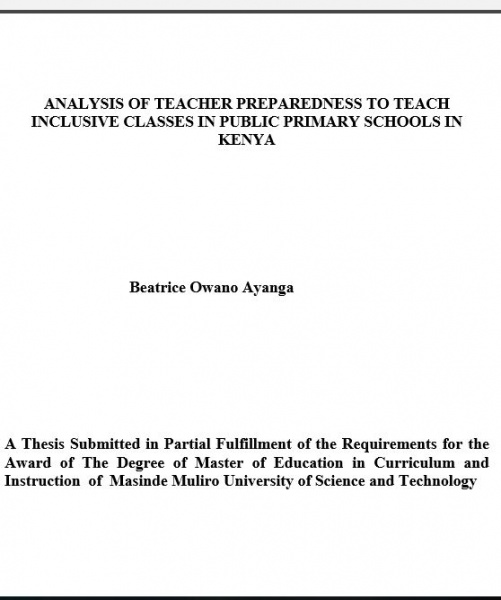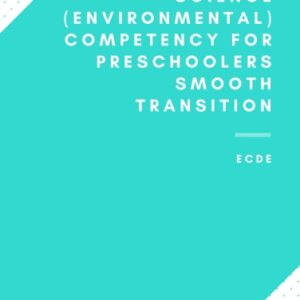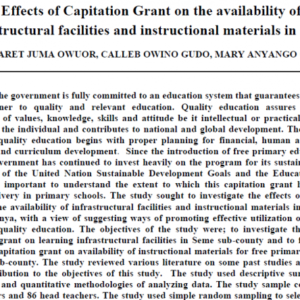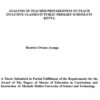Globally, many countries have made efforts to achieve Education for All (EFA). This has been done by finding ways of enabling schools to serve all children including those with special needs in their communities as part of an inclusive education system. In Kenya, the government has supported the education system through provision of the Constituency Development Fund which has enabled schools to modify the physical and social environment so that they can fully accommodate the diversity of learning needs that pupils may have. However, learners with special needs in inclusive classes in Lugari Sub-county have continued to perform poorly causing concern to educators and the general community. This study was carried out in Lugari Sub-county with intentions of establishing teacher preparedness to teach inclusive classes. Specific objectives of the study were; to find out methods used by teachers in teaching inclusive classes in public primary schools; establish teachers level of training; find out educational resources used by teachers; to identify support services they got from educational administrators and; to establish teacher preparedness in terms of skills. The descriptive survey design was used in the study which was drawn from a study population of 49 primary schools, 49 head teachers with enrolment of 32,226 pupils and 672 assistant teachers.
A sample drawn comprised of 20 public primary schools, 5 education officers 20 head teachers and 200 teachers. Both face and content validity were used to validate data collection Instruments which included; questionnaires, interview schedules and document analysis. The questionnaire had a reliability factor of 0.7 on a spearman correlation. Collected data was analyzed using descriptive statistics such as frequencies and percentages. Analyses showed that majority of teachers were not trained in special needs education and therefore, could not effectively handle inclusive classes. Most of them used inappropriate methodologies to teach inclusive classes, while a good number rarely used available teaching resources in their classes. This indicated that teachers, though well trained and qualified, were not able to handle inclusive classes where learners with special needs are placed. The present study concluded that in-service training should precede for teachers to be able to teach inclusive classes.
Also individualized educational programme approach for learners with special needs as well as appropriate learning materials could best bring out their potential. From the findings, the study recommends that the society should establish a sensitization centre to reach out to parents, teachers, communities and other stakeholders as intervention measure to accommodate learners with disabilities in the school and society. The study too strongly recommends that the teacher training curriculum should be reviewed so that teachers can be trained in special needs education. This may equip teachers with necessary skills, appropriate methodology as well as teaching and learning resources to be used and they would also be able to identify interventional measures to be used in placement of learners with special needs in inclusive classes.











 No products in the cart.
No products in the cart. 
Reviews
There are no reviews yet.